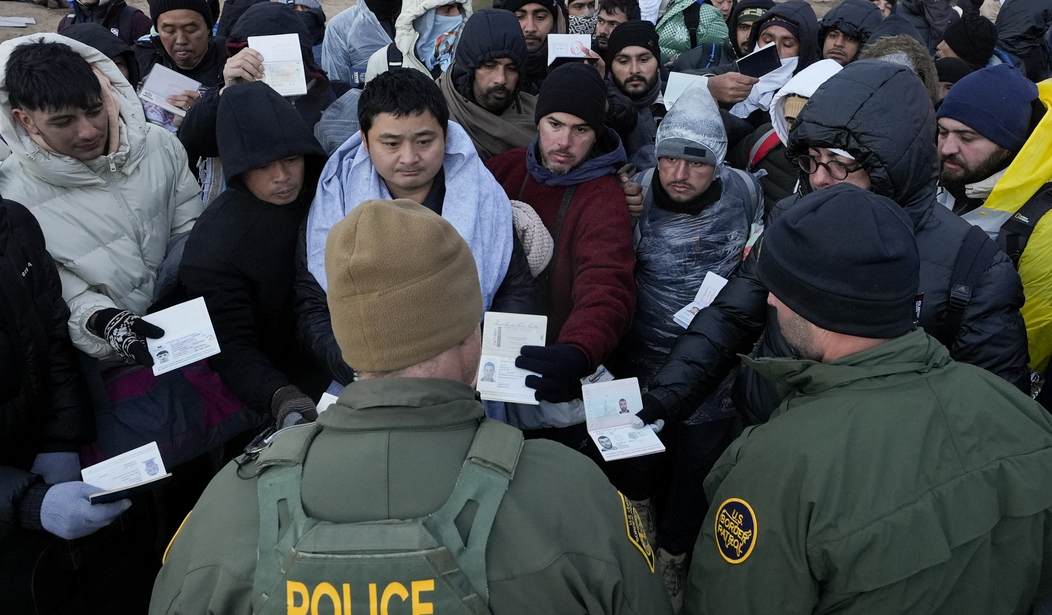A bipartisan group of senators is demanding answers from Homeland Security Secretary Alejandro Mayorkas about Border Patrol agents searching travelers' phones and other electronic devices without a warrant or reasonable suspicion of a crime.
The practice, which has been in effect since 2018, has been the subject of scrutiny, with many raising concerns about violations of the Fourth Amendment.
In a letter signed by Sens. Gary Peters (D-MI), Rand Paul (R-KY), Ron Wyden (D-OR), and Mike Crapo (R-ID), the lawmakers said they “are concerned that the current policies and practices governing the search of electronic devices at the border constitute a departure from the intended scope ad application of border search authority.”
The letter also noted that “[t]he ability of these agencies to inspect property...without a warrant, and under different legal standards than those applicable to law enforcement agencies without border search authority, is distinct.”
Customs and Border Protection argued in 2018 that the authority to search electronic devices without warrants is essential for protecting national security.
CBP defended the longstanding practice as essential to protecting national security in a 2018 directive that established guidelines for the searches. Without probable cause to seize a person’s device and copy its data, the agency “may retain only information relating to immigration, customs and/or other enforcement matters,” it said.
The guidelines permit officers to conduct a “basic search” without a warrant or any suspicion that the traveler has committed a crime. Those searches include manually scrolling through a person’s contacts, call logs, messages, photos, videos, calendar entries and audio files, according to a CBP analysis. But anyone who refuses to hand over their devices with the passcodes can have them seized for days.
If there is “reasonable suspicion of activity in violation of the laws” or “a national security concern,” officers can conduct an “advanced search,” with approval from a supervisor, and copy the contents of the device, the directive said. The information is then stored in a database known as the Automated Targeting System, according to the analysis.
Between October 2018 and March 2024, CBP conducted more than 252,000 searches, a tiny fraction of the hundreds of millions of travelers processed at U.S. ports of entry, according to the agency, which does not specify how many devices had their data uploaded to the database.
The senators also brought up concerns about other federal agencies using the data obtained by CBP without warrants. The letter continues:
“[W]e request information on how other agencies utilize CBP and ICE’s border search authority to access information on individuals’ electronic devices in situations where they would otherwise be required to obtain a warrant.”
The senators go on to request a briefing within two weeks to discuss the extent of Border Patrol’s authority to conduct these searches, how many searches have been conducted, whether any government agency “installed software, firmware, or hardware” on devices,” and several other concerns.
While this issue has not garnered much media attention, there has been plenty of debate related to this practice. In 2023, a federal judge agreed that CBP’s authority to conduct warrantless searches at the border is excessive.
But last month a federal judge ruled that a free pass to probe electronic devices is too broad, and that Americans enjoy some protections at the border of the sort they have elsewhere.
In this latest case, United States v. Smith, Jatiek Smith, the subject of a federal investigation, was stopped at the airport in Newark on his return from Jamaica. As detailed by U.S. District Judge Jed S. Rakoff, federal agents “forced him to turn over his cellphone and its password. They reviewed the phone manually and created and saved an electronic copy of it as it existed as of that date and time – all without a search warrant.”
The letter comes shortly after Congress passed legislation reauthorizing the Foreign Intelligence Surveillance Act, which has stirred much controversy over a provision allowing federal agencies to spy on American citizens without first obtaining a warrant.














Join the conversation as a VIP Member